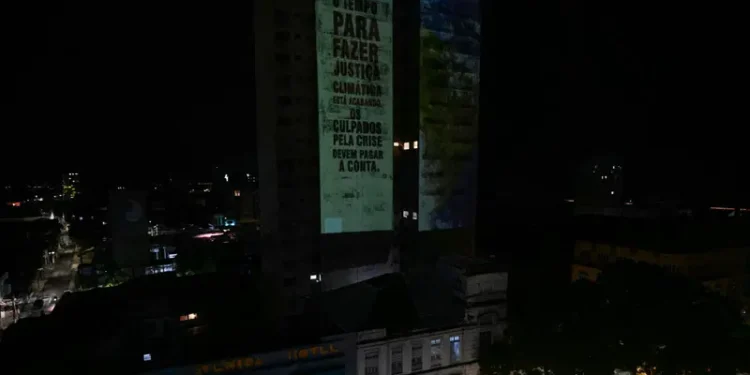Belem, Brazil – The second day of the COP30 climate conference in the Brazilian Amazon was dominated not by Washington but by two prominent U.S. governors. While the Trump administration skipped the summit, California Governor Gavin Newsom and New Mexico Governor Michelle Lujan Grisham arrived to push their own climate agendas.
The conference, which runs from November 10 to 21, is being held in the humid heart of the Amazon rainforest, a setting that underscores the urgency of the talks. On Tuesday, activists projected messages onto a building on Presidente Vargas Avenue in Belem to mark the end of the first day of COP30.
Governor Newsom, who governs the world’s fourth‑largest economy, used a Milken Institute event in São Paulo to criticize the federal stance, saying the United States is “doubling down on stupid” and emphasizing that “not in my state of California.” He met with Pará Governor Helder Barbalho, whose state hosts the COP30 venue, and later with Governor Lujan Grisham.
California, which has a $4.1 trillion economy now two‑thirds powered by clean energy, highlighted its Cap‑and‑Invest carbon market that has been extended by law until 2045. Newsom’s presence is also seen as a preview of a possible 2028 presidential bid, positioning him as a vocal opponent of the Trump administration’s fossil‑fuel focus.
New Mexico, a major fossil‑fuel producer, is nevertheless moving to expand renewables and curb methane emissions from its oil and gas sector. Governor Lujan Grisham’s participation underscores the growing role of sub‑national actors in climate policy.
The United States withdrew from the Paris Agreement after President Donald Trump’s return to office in January, but state‑level leaders argue they can still follow the roadmap left by the Biden administration. Champa Patel of the Climate Group’s Under2 Coalition said states retain the ability to implement the Paris spirit and that market forces are already driving wind and solar growth even in Republican‑led states.
However, the limits of state action are evident. Recent Republican‑backed legislation in the U.S. ended clean‑energy tax credits created under Biden, a move that could hamper renewable development. While state coalitions can pressure climate negotiations, they remain excluded from the formal text‑drafting process at the UN summit.
The COP30 backdrop – a protest‑filled Belem and the looming threat of Amazon deforestation – highlights the contrast between federal withdrawal and the continued push by sub‑national leaders to keep global climate cooperation alive.









